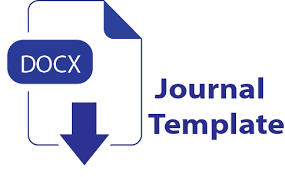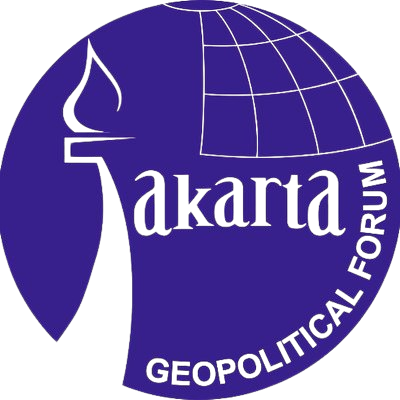ADVANCING RENEWABLE ENERGY POLICY IN A FRACTURED GLOBAL ECONOMY: A NEW STRUCTURAL ECONOMICS APPROACH FOR DEVELOPING NATIONS
DOI:
https://doi.org/10.55960/jgf.v9i1.292Keywords:
downstreaming, energy transition, structural economics, sustainable development, middle-income trapAbstract
With the rapid evolution of global energy transition, emerging economies are under increasing pressure to upgrade the industrial structures and assert strategic position in global value chains. Indonesia with rich natural resources approaches a crucial moment to prevent the mid-income trap and technological stagnation. This paper analyses the New Structural Economics (NSE) as a model for industrial transformation through the experiences of Indonesia in the development of downstream resource-based industries for technological transfer and regional cooperation in energy trade. Using qualitative content analysis of policy documents, expert statements, regional cooperation frameworks, and institutional arrangements, the paper analyses regulatory coherence, public participation, and inter-institutional coordination in the country. Empirical evidence, coupled with the nickel export ban and the involvement in the Asean Power Grid serve to show the potential and limitations of NSE principles into practice. Results underscore the significance of a standard body and regulation, public trust, the inclusiveness of human capital development, and sustainability assurance. Drawing from the analysis, the research suggests that an integrated, pro-active and participatory policy approach based on NSE may help Indonesia take a leading role in the regional energy transition and competitive industrial future.
Downloads
References
1. Vanegas Cantarero MM. Of Renewable Energy, Energy Democracy, and Sustainable Development: A Roadmap to Accelerate the Energy Transition in Developing Countries. Energy Res Soc Sci. 2020;70(1):101716.
2. Blondeel M, Bradshaw MJ, Bridge G, Kuzemko C. The geopolitics of energy system transformation: A review. Geogr Compass. 2021 Jul 1;15(7):12580.
3. Azzahra A. Energy Geopolitics in the Transition Era: Indonesia’s Strategy in Creating Energy Security Amidst Global Crisis. J Polit Innov Anal. 2025;2(1):12–21.
4. Dini Putri Saraswati, Shanti Darmastuti, Nurfarah Nidatya, Dinda Jasmine. Peran Strategis Indonesia dalam Geopolitik Transisi Energi di Bidang Sumber Daya Mineral. Khatulistiwa J Pendidik dan Sos Hum. 2025 May 19;5(2):599–615.
5. Sandys D. Jakarta Geopolitical Forum IX/2025. 2025 [cited 2025 Aug 10]. Advancing Renewable Energy Policy in a Fractured Global Economy: A New Structural Economics Approach for Developing Nations. Available from: https://www.youtube.com/watch?v=DK6je9dj94I&t=18180s
6. Sandys D. Advancing Renewable Energy Policy in a Fractured Global Economy: A New Structural Economics Approach for Developing Nations. Singapore; 2025.
7. Lin JY. New Structural Economics: A Framework of Studying Government and Economics. J Gov Econ. 2021;2(1):100014.
8. Santoso RB, Dermawan W, Moenardy DF. Indonesia’s Rational Choice in the Nickel Ore Export Ban Policy. Cogent Soc Sci. 2024 Dec 31;10(1):2400222.
9. Febiola CP, Pratiwi CA, Salsabila RA, Bramantyo A. Nickel Ore Export Prohibiton in The Framework Wolrd Trade Organization as An Effort to Protect Natural Resources (WTO Study Case DS592: Indonesia Measures Relating To Raw Materials). J Ilm Advokasi. 2024;12(3):444–55.
10. Aris H, Jørgensen BN. ASEAN Power Grid 20 Years After: An Overview of Its Progress and Achievements. IOP Conf Ser Earth Environ Sci. 2020;463(1):12055.
11. Do TN, Burke PJ. Is ASEAN Ready to Move to Multilateral Cross-Border Electricity Trade? Asia Pac Viewp. 2023 Apr 1;64(1):110–25.
12. Saunders M, Lewis P, Thornhill A. Research Methods for Business Students by Mark Saunders, Philip Lewis and Adrian Thornhill 8th edition. [Internet]. Research Methods For Business Students. 2015. 768 p. Available from: https://www.google.co.id/books/edition/Research_Methods_for_Business_Students/0DHFsgEACAAJ?hl=en
13. Krippendorff K. Content Analysis: An Introduction to Its Methodology [Internet]. SAGE Publications; 2018. 472 p. Available from: https://methods.sagepub.com/book/mono/content-analysis-4e/toc
14. Esiri AE, Kwakye JM, Ekechukwu DE, Ogundipe OB, Ikevuje AH. Public Perception and Policy Development in the Transition to Renewable Energy. Magna Sci Adv Res Rev. 2023;8(2):228–37.
15. Gebreslassie MG. Public Perception and Policy Implications towards the Development of New wWind Farms in Ethiopia. Energy Policy [Internet]. 2020;139(1):111318. Available from: https://www.sciencedirect.com/science/article/pii/S0301421520300756
16. Widarni EL, Bawono S. Human Capital, Technology, and Economic Growth: A Case Study of Indonesia. J Asian Financ Econ Bus. 2021;8(5):29–35.
17. Sidabutar VTP. Challenges to the Sustainability of Exports of Indonesian Commodity Products from the European Union’s Environmental Perspective. J Bisnis Strateg. 2024;2(1):100–7.
18. Nissa Nur Awaliyah, Iranto D, Mukhtar S. Policy Analysis of European Union Deforestation Regulation (EUDR) on Indonesian Palm Oil Exports. Int Student Conf Business, Educ Econ Accounting, Manag. 2024 Feb 21;1(1):501–10.
Downloads
Published
Conference Proceedings Volume
Section
License
Copyright (c) 2025 Author

This work is licensed under a Creative Commons Attribution-ShareAlike 4.0 International License.










